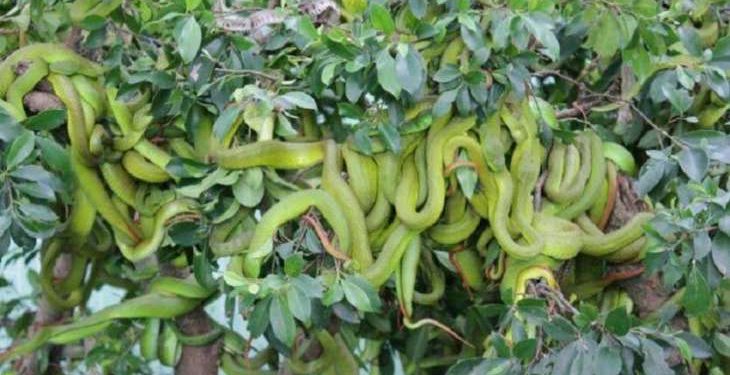Lots of people are afraid of snakes and would rather not go near. What if I say there are farmers who make about $12m a year? That’s the amount of revenue generated by a few entrepreneurial snake farmers in the tiny village of Zisiqiao in China’s Zhejiang province.
Fang Yin and his wife Yang Xiaoxia are two of those entrepreneurs.
“At first I was afraid and thought they were gross. But now I’m used to all this.” Cobras, pythons and vipers can be found in many homes in Zisiqiao including Fang and Yang’s, which is why many call the place “snake village”. At first I was afraid and thought they were gross. But now I’m used to all this,” Fang quips.
The 30-year-old couple, along with others from their village, sells more than 3 million snakes a year to pharmaceutical companies who use the gall bladders, livers and skin from the reptiles to create nutritional supplements which are ultimately sold to customers in Japan, South Korea, America and Europe.
Snakes have been considered medicinal for thousands of years in China. People there swallow snake pills and drink snake wine made from snake-based ingredients because they believe that it helps to cure spinal disease or reduce the damage to one’s liver when taken before drinking alcohol. A single gram of snake venom can bring in 3,000-5,000 yuan (about $450-$750) and many restaurants use snake meat as ingredients for cooking.
Of course, the occupation can have its drawbacks. Like, being bitten and dying? Some of the local farmers routinely suffer snake bites and are only saved by injection of an anti-venom medicine.
But some people are willing to take risks when there’s money to be made, and many in the province have put aside their fears or disgust of snake farming for the benefits of being self-employed.
Agencies






































